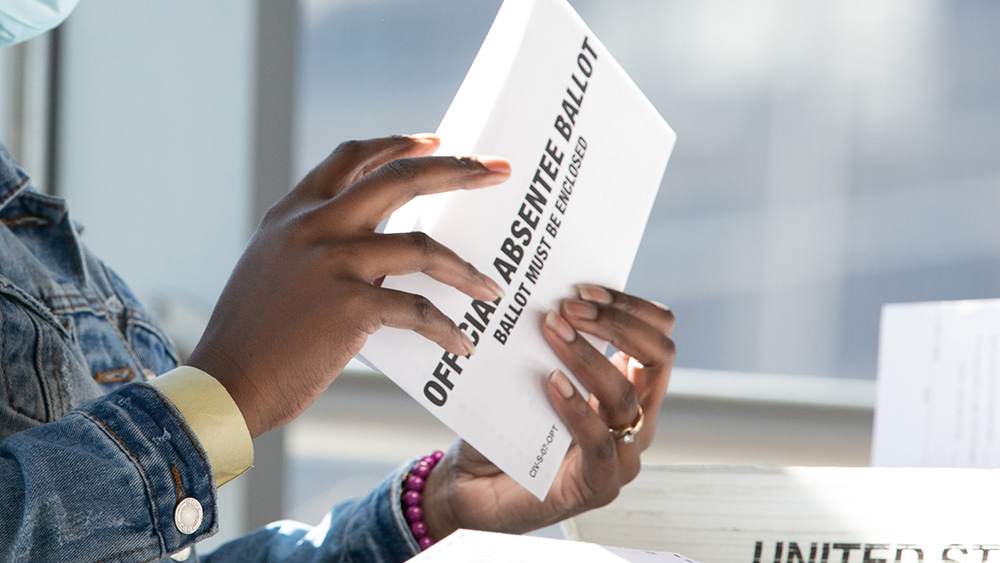Big win for election integrity in PA as court confirms improper absentee ballots wonât be counted

Big win for election integrity in PA as court confirms improper absentee ballots won’t be counted
Common sense has prevailed in Pennsylvania – at least for now – as the United States Circuit Court of Appeals for the Third Circuit has ruled in favor of keeping a Pennsylvania rule intact that states absentee ballots that are not properly dated will not be counted.
You might think that a ballot that has not been signed or dated simply wouldn’t be counted, but Democrats, in their unending quest to manipulate the mail-in ballot system so they can stack the vote in favor of their candidates – actually had a lawyer, Mark Elias, challenge these regulations. He even went so far as to say that it was one of the most important cases this year.
The case was driven by voter advocacy groups such as the League of Women Voters of Pennsylvania and the Pennsylvania State Conference of NAACP branches, who were challenging state laws that dismiss absentee ballots that are not dated correctly. Multiple county boards of elections and the Secretary of the Commonwealth argued that requiring the ballots to be dated is a necessary measure in order to uphold the sanctity of the voting process.
Thankfully, the Third Circuit Court of Appeals would not let them get away with this nonsense, denying to even hear a case about whether the date requirement for absentee ballots is enforceable in a 9-to-4 vote.
One can only hope that the vote will set a precedent for much stricter rules regarding the mail-in voting process. The decision is being hailed as a big win for election integrity.
Absentee ballots with incorrect information or without dates often pose issues in elections and lead to disqualifications. Although the specific rules vary by state and locality, there are often requirements related to the voter signature and date on an inside envelope or the postmark date on the outside of the ballot.
Human knowledge is under attack! Governments and powerful corporations are using censorship to wipe out humanity's knowledge base about nutrition, herbs, self-reliance, natural immunity, food production, preparedness and much more. We are preserving human knowledge using AI technology while building the infrastructure of human freedom. Speak freely without censorship at the new decentralized, blockchain-power Brighteon.io. Explore our free, downloadable generative AI tools at Brighteon.AI. Support our efforts to build the infrastructure of human freedom by shopping at HealthRangerStore.com, featuring lab-tested, certified organic, non-GMO foods and nutritional solutions.
Arizona courts uphold voting laws related to proof of citizenship
The ruling brings Pennsylvania in line with other states that have been cracking down on absentee ballot abuse after the 2020 presidential election fiasco. For example, Arizona courts have recently upheld voting laws related to presenting proof of citizenship. In March, a U.S. District Judge ruled that Arizona's new voting laws requiring voters to present proof of citizenship are not discriminatory. The ruling was related to a provision requiring counties to verify the status of all registered voters who have not supplied proof of their American citizenship and to cross-check their registration information against government databases.
In her ruling, U.S. District Judge Susan Bolton wrote: “Considering the evidence as a whole, the court concludes that Arizona’s interests in preventing non-citizens from voting and promoting public confidence in Arizona’s elections outweighs the limited burden voters might encounter when required to provide (documentary proof of citizenship).”
Alabama, Mississippi and Texas have all passed laws targeting the practice of harvesting absentee ballots since the 2020 election, restricting factors such as the number of ballots that a single person can witness, who is allowed to witness individuals signing their absentee ballots, and who is permitted to return these ballots on behalf of voters.
Several other states have also made tweaks to make their election processes fairer and more dependable, but there is still more work to do to close the door to abuse.
Sources for this article include:



